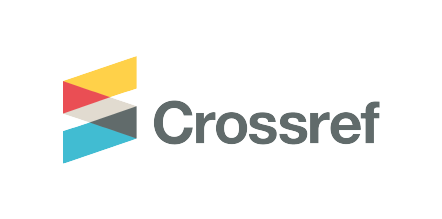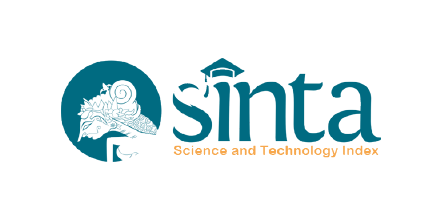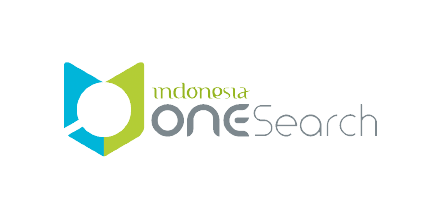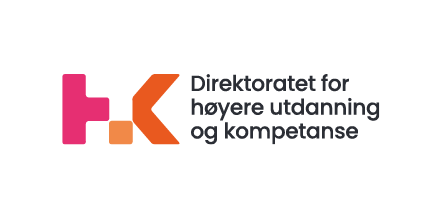Teachers' Attitudes Towards Inclusive Education: A Literature Review
DOI:
https://doi.org/10.21776/ub.ijds.2019.006.01.4Keywords:
teachers' attitudes, inclusice education, literature reviewAbstract
This study conducted to investigate the teachers' attitudes towards inclusive education, and what variables are influenced to their attitudes. A review of 27 literatures that involves 5471 teachers resulted that most of the teacher hold positive attitudes towards inclusive education. Some studies also report negative and neutral attitudes. The term of attitudes was defined differently among the studies. The variables that found influence to the attitudes include are found on teacher's educational degree and background, teacher training, and the type of the disability. The implication of the attitudes towards inclusion were discussed.
References
Forbes F. Towards inclusion: an Australian perspective. Support for Learning. 2007;22(2):66-71.
Hwang Y-S, Evans D. Attitudes towards inclusion: gaps between belief and practice. International journal of special education. 2011;26(1):136-46.
Rajovic V, Jovanovic O. The Barriers to Inclusive Education: Mapping 10 Years of serbian Teachers' Attitudes Toward Inclusive Education. The Journal of Special Education and Rehabilitation. 2013;14(3/4):78-97.
Unianu EM. Teachers’ attitudes towards inclusive education. Procedia - Social and Behavioral Sciences. 2012;33(0):900-4.
de Boer A, Pijl SJ, Minnaert A. Regular primary schoolteachers’ attitudes towards inclusive education: a review of the literature. International Journal of Inclusive Education. 2010;15(3):331-53.
Male DB. The impact of a professional development programme on teachers' attitudes towards inclusion. Support for Learning. 2011;26(4):182-6.
Subban P, Sharma U. Primary school teachers’ perceptions of inclusive education in Victoria, Australia. International Journal of Special Education. 2006;21(1):42-52.
Schwarz N, Bohner G. The Construction of Attitudes. In: Tesser A, Schwarz N, editors. Blackwell Handbook of Social Psychology: Intraindividual Processes. Oxford, UK: Blackwell; 2001. p. 436-57.
Arnold J, Randall R. Work psychology: understanding human behaviour in the workplace. Harlow: Financial Times Prentice Hall; 2010.
Idol L. Toward Inclusion of Special Education Students in General Education: A Program Evaluation of Eight Schools. Remedial and Special Education. 2006;27(2):77-94.
Gal E, Schreur N, Engel-Yeger B. Inclusion of Children with Disabilities: Teachers' Attitudes and Requirements for Environmental Accommodations. International Journal of Special Education. 2010;25(2):89-99.
Khochen M, Radford J. Attitudes of teachers and headteachers towards inclusion in Lebanon. International Journal of Inclusive Education. 2011;16(2):139-53.
Todorovic J, Stojiljkovic S, Ristanic S, Djigic G. Attitudes towards Inclusive Education and Dimensions of Teacher's Personality. Procedia - Social and Behavioral Sciences. 2011;29(0):426-32.
Chiner E, Cardona MC. Inclusive education in Spain: how do skills, resources, and supports affect regular education teachers’ perceptions of inclusion? International Journal of Inclusive Education. 2012;17(5):526-41.
Bhatnagar N, Das A. Attitudes of secondary school teachers towards inclusive education in New Delhi, India. Journal of Research in Special Educational Needs. 2014;14(4):255-63.
Rakap S, Kaczmarek L. Teachers’ attitudes towards inclusion in Turkey. European Journal of Special Needs Education. 2010;25(1):59-75.
Hofman RH, Kilimo JS. Teachers’ Attitudes and Self-Efficacy Towards Inclusion of Pupils With Disabilities in Tanzanian Schools. Journal of Education and Training. 2014;1(2):177-98.
Gaad E, Khan L. Primary Mainstream Teachers' Attitudes towards Inclusion of Students with Special Educational Needs in the Private Sector: A Perspective from Dubai. International journal of special education. 2007;22(2):95-109.
Hsieh W-Y, Hsieh C-M. Urban early childhood teachers' attitudes towards inclusive education. Early Child Development and Care. 2011;182(9):1167-84.
Helldin R, Bäckman Ö, Dwyer H, Skarlind A, Hugo AJ, Nel N, et al. Opportunities for a democratic pedagogy: a comparative study of South African and Swedish teachers' attitudes to inclusive education. Journal of Research in Special Educational Needs. 2011;11(2):107-19.
Savolainen H, Engelbrecht P, Nel M, Malinen O-P. Understanding teachers’ attitudes and self-efficacy in inclusive education: implications for pre-service and in-service teacher education. European Journal of Special Needs Education. 2011;27(1):51-68.
Emam MM, Mohamed AHH. Preschool and primary school teachers’ attitudes towards inclusive education in Egypt: The role of experience and self-efficacy. Procedia - Social and Behavioral Sciences. 2011;29(0):976-85.
Galović D, BrojÄin B, Glumbić N. The attitudes of teachers towards inclusive education in Vojvodina. International Journal of Inclusive Education. 2014;18(12):1262-82.
Combs S, Elliott S, Whipple K. Elementary Physical Education Teachers' Attitudes towards the Inclusion of Children with Special Needs: A Qualitative Investigation. International journal of special education. 2010;25(1):114-25.
Kurniawati F, Minnaert A, Mangunsong F, Ahmed W. Empirical Study on Primary School Teachers’ Attitudes Towards Inclusive Education in Jakarta, Indonesia. Procedia - Social and Behavioral Sciences. 2012;69(0):1430-6.
Vermeulen JA, Denessen E, Knoors H. Mainstream teachers about including deaf or hard of hearing students. Teaching and Teacher Education. 2012;28(2):174-81.
Ahmmed M, Sharma U, Deppeler J. Variables affecting teachers' attitudes towards inclusive education in Bangladesh. Journal of Research in Special Educational Needs. 2012;12(3):132-40.
MacFarlane K, Woolfson LM. Teacher attitudes and behavior toward the inclusion of children with social, emotional and behavioral difficulties in mainstream schools: An application of the theory of planned behavior. Teaching and Teacher Education. 2013;29(0):46-52.
Dukmak SJ. Regular Classroom Teachers’ Attitudes towards Including Students with Disabilities in the Regular Classroom in the United Arab Emirates. The Journal of Human Resource and Adult Learning. 2013;9:26-38.
Sukbunpant S, Arthur-Kelly M, Dempsey I. Thai preschool teachers' views about inclusive education for young children with disabilities. International Journal of Inclusive Education. 2012;17(10):1106-18.
Yeo LS, Chong WH, Neihart MF, Huan VS. Teachers' experience with inclusive education in Singapore. Asia Pacific Journal of Education. 2014:1-15.
Boyle C, Topping K, Jindal-Snape D, Norwich B. The importance of peer-support for teaching staff when including children with special educational needs. School Psychology International. 2012;33(2):167-84.
Chhabra S, Srivastava R, Srivastava I. Inclusive Education in Botswana: The Perceptions of School Teachers. Journal of Disability Policy Studies. 2010;20(4):219-28.
Li Q. A novel Likert scale based on fuzzy sets theory. Expert Systems with Applications. 2013;40(5):1609-18.
Maria UE. Teachers’ Perception, Knowledge and Behaviour in Inclusive Education. Procedia - Social and Behavioral Sciences. 2013;84(0):1237-41
Downloads
Published
How to Cite
Issue
Section
License
Copyright (c) 2019 Dede Supriyanto

This work is licensed under a Creative Commons Attribution-NonCommercial 4.0 International License.















